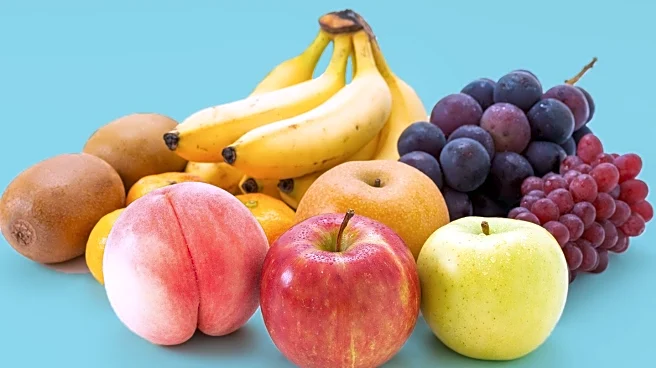What's Happening?
Recent research presented at the European Respiratory Society Congress indicates that eating fruit daily could help protect lung function against air pollution. The study analyzed data from 200,000 UK Biobank participants, focusing on fruit intake and lung function measured by FEV1. Findings suggest that higher fruit consumption is linked to better lung function despite exposure to particulate matter. The antioxidant properties of fruit may mitigate the oxidative stress caused by air pollution, offering a dietary approach to support lung health.
Why It's Important?
Air pollution poses significant health risks, particularly in urban areas. The study's findings highlight the potential of dietary interventions to support lung health, offering a proactive approach to mitigating pollution's effects. Increasing fruit consumption could be a simple, accessible strategy to enhance respiratory health, particularly for individuals in high-pollution areas. This research may influence public health recommendations, emphasizing the role of diet in environmental health.
What's Next?
Further studies are needed to explore the specific mechanisms by which fruit influences lung health, potentially leading to targeted dietary guidelines. Public health initiatives could promote fruit consumption as part of a comprehensive strategy to combat air pollution's health impacts. Healthcare providers might integrate discussions on diet and environmental health into routine check-ups, emphasizing the importance of nutrition in respiratory health.
Beyond the Headlines
The study underscores the broader trend of using diet as a tool for environmental health, reflecting a shift towards holistic wellness approaches. Ethical considerations may arise regarding access to fresh fruit, particularly in underserved communities. Long-term, this research could contribute to a shift towards preventive health strategies, impacting healthcare costs and outcomes.










